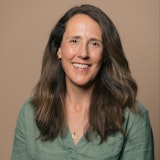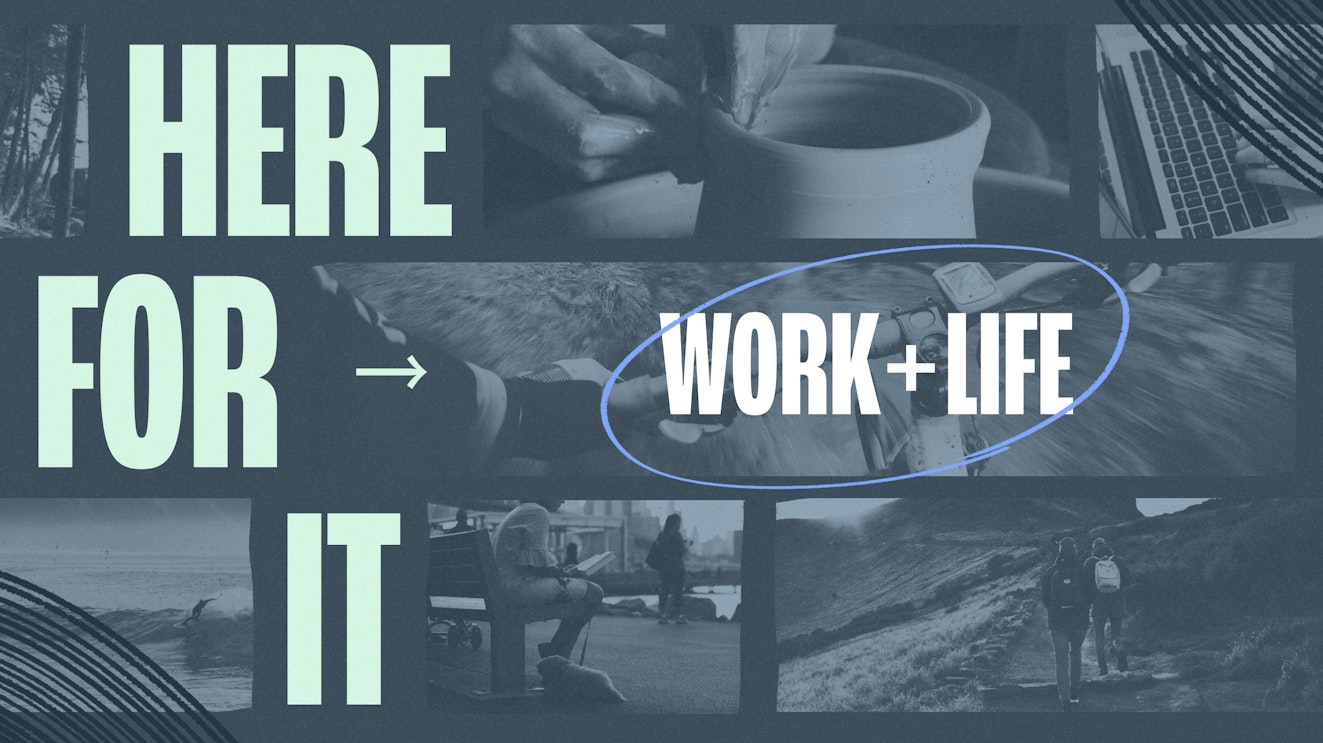There’s a lot of compelling research out there to support the fact that folks who pursue hobbies and side hustles alongside their primary jobs perform better, are more productive, are more engaged, and stay in their jobs longer. It makes sense: If you’re fired up to get after a passion project or dive into a hobby, you’re likely to bring that enthusiasm and initiative to your main role, as well.
Supporting folks as they engage in all the things that fill them up outside of work is a priority at Help Scout. “Exploring a hobby or side project is something we encourage everyone to do,” said Nick Francis, Help Scout’s co-founder and CEO. “It’s certainly something that’s important to me. I’ve found that those pursuits are a great way to turn off my ‘work brain,’ recharge, and develop gratifying new skills. It’s also one of the reasons I’ve been able to love the same job for 12 years and counting!”
While some leaders believe outside work — and side hustles, specifically — will detract from their employees’ productivity, Nick has found the opposite to be true. “In my experience, encouraging folks to pursue paid freelance or project work outside of their job at Help Scout is a great way for the person to further their craft and learn new things, which they bring back to their day job. It keeps the work fresh. I can’t really imagine that any other perspective would foster an optimal work culture.”
Interested in learning more about how that support for employees’ passions plays out in real life? Read this installment in our Here for it: Work + Life series, which introduces Help Scout team members who are melding personal projects or fulfilling hobbies with their remote roles to create a pretty phenomenal work-life blend.
Anthony Gass
Account Executive and mountain bike enthusiast/coach, Bellingham, Washington
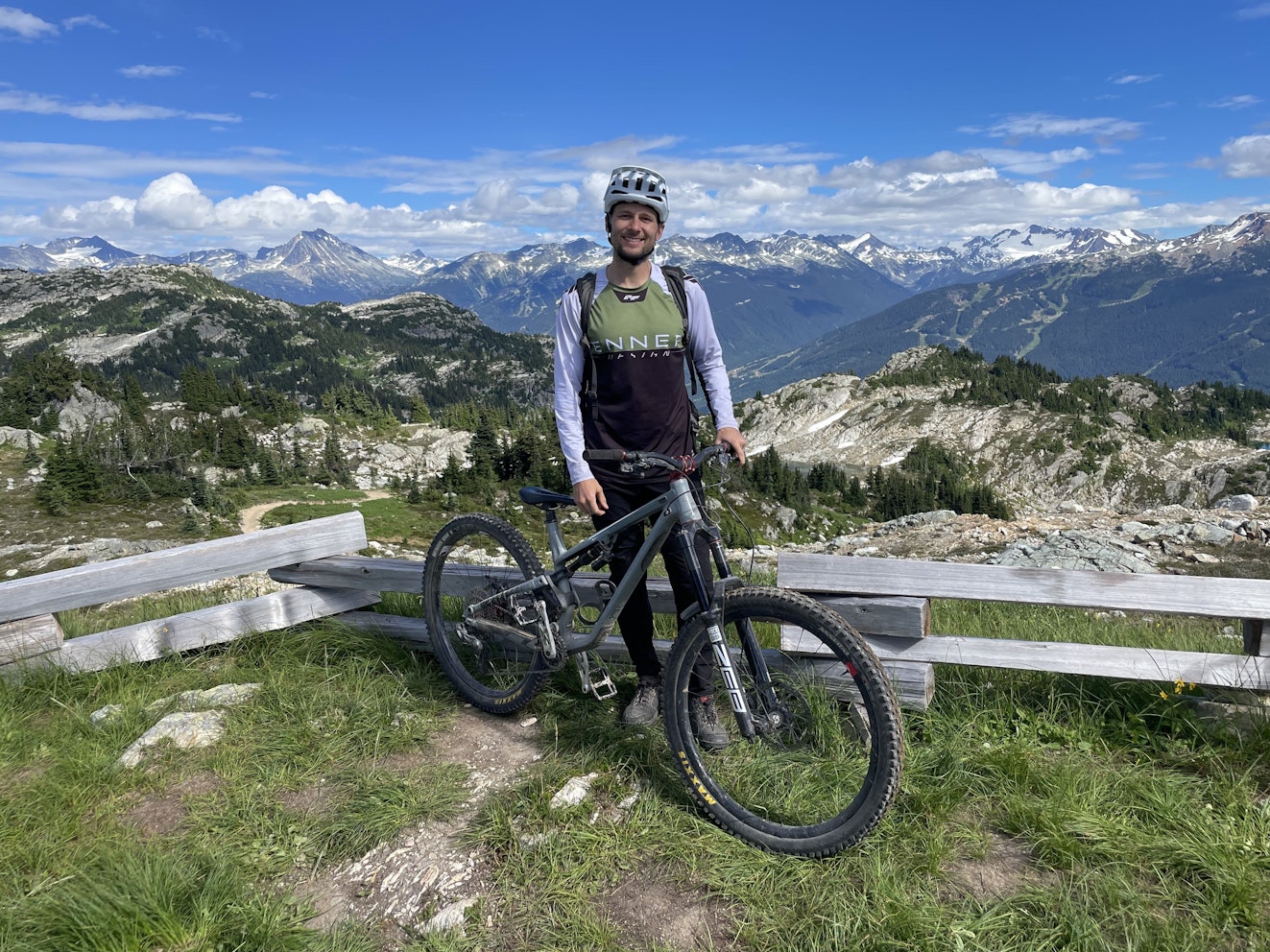
When I catch up with Anthony Gass via Zoom on a Thursday afternoon, he’s wrapping up his last work day before a summer Fun Friday (all Help Scout employees have Fridays off during July and August). His plans after he logs off paint a pretty clear picture of where his passions take him beyond the work day: This afternoon, he’ll head out for a mountain bike ride near his home in Bellingham, Washington, and tomorrow, he’ll drive three hours north to Whistler, British Columbia to spend the three-day weekend camping and biking with friends.
“Yeah, my life pretty much revolves around biking,” Anthony said, smiling at the prospect of his weekend plans. “Even when I’m not actually riding, a lot of my friendships, my connection with the community, and my social life are all pretty closely tied to mountain biking.”
In fact, Anthony landed in Bellingham after spending two years touring around the U.S. in a converted van, scoping out a list of 10 towns he had identified as ideal locales to optimize his love for the outdoors — and mountain biking, specifically. The stars aligned over Bellingham, a renowned mountain biking destination, which a recent article in The Seattle Times noted is “home to 16 brick-and-mortar bike shops, two mobile bike shops, three bike brands with global distribution, a handful of mountain bike-accessory makers, 20 after-school bike clubs and quarterly magazine Freehub.” Hard to imagine a better place for Anthony to call home.
A remote-first role aligns bike goals and career goals
The option to hit the road, explore, and focus intentionally on building a life around his passion was a goal when Anthony joined the Help Scout sales team in 2019. “I was sick of commuting, and I just wanted to spend more daylight hours outside,” he said. When he connected with a former colleague who was working at the company, which was built remote-first from day one, he saw the opportunity to further develop his sales career in a role that offered autonomy and flexibility to pursue his passion for an outdoor-focused life.
In the three years since, Anthony has experienced the authenticity of the company’s commitment to supporting employees in living full, healthy lives alongside fulfilling careers. “A lot of companies, and sales roles specifically, are remote now, but the unique story at Help Scout is the trust placed with team members to do their best work and our shared commitment to excellence,” he said. “We have autonomy to work in a flexible way that makes space for family, hobbies, health — whatever fills us up. There’s no guilt or hesitation to log off when the work is done because we’re all remote and aligned around the same goals and a shared understanding of work-life integration.”
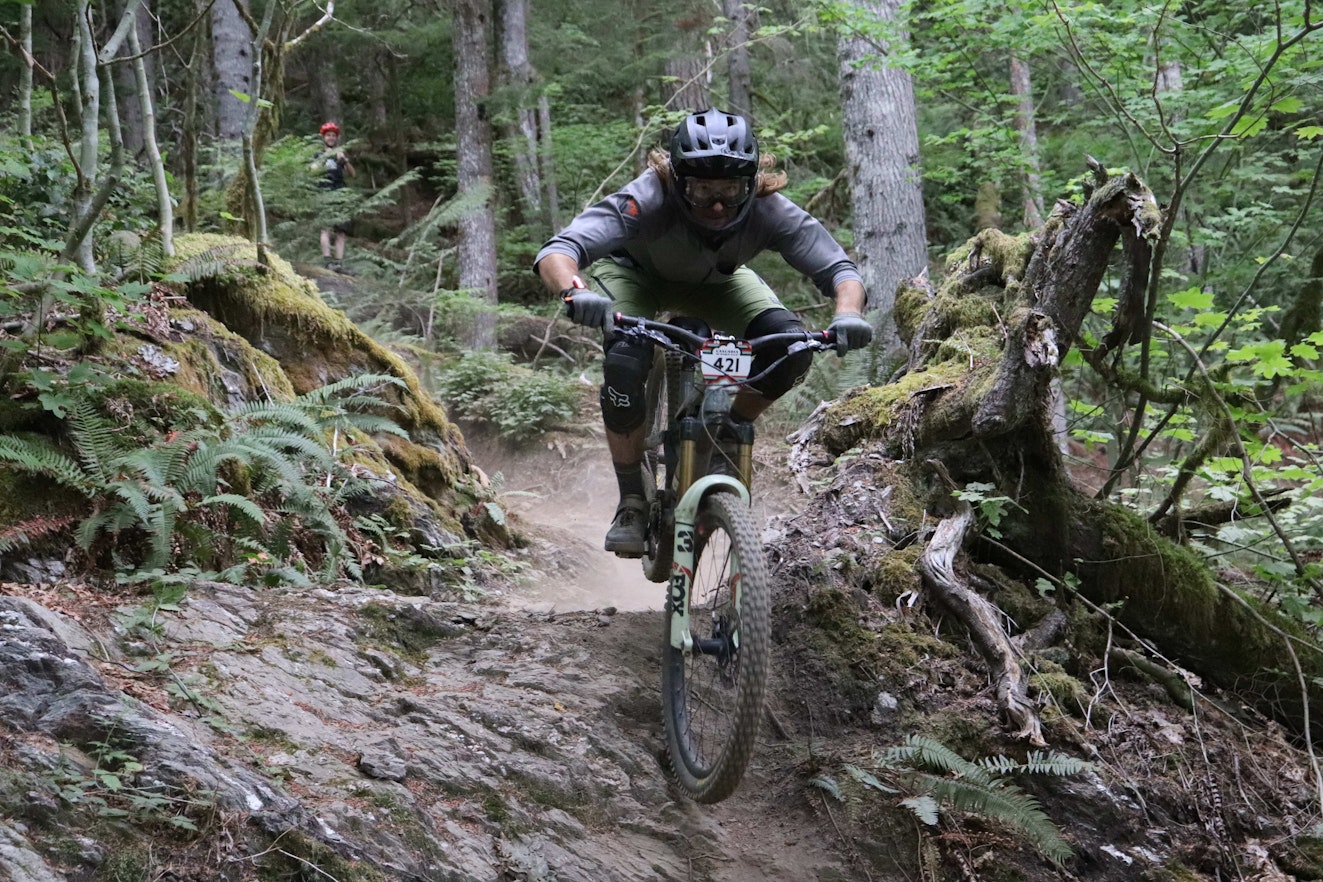
Bike-work-life integration
That trust and autonomy means Anthony can shape his days to prioritize both his work and his love for biking. “I work East Coast hours, even though I live on the West Coast, so I'm pretty much done every day by 2 p.m.,” he said. Twice a week he uses that time in the afternoon to volunteer as a coach for two community mountain biking organizations — Radical Rippers and Vamos Outdoor Project — that serve young riders in Bellingham.
He also spends a couple of months each year in Sedona, Arizona, where his sister runs a mountain bike coaching business. “I recently coached a 75-year-old rider in Sedona who had never biked before, which was really inspiring,” he said. The opportunity to introduce the sport to others and give back to the mountain biking community fuels his commitment to coaching. “I think teaching suits my personality, so it feels like a natural way to give back,” he said. “I’m so grateful for what mountain biking has given to me.”
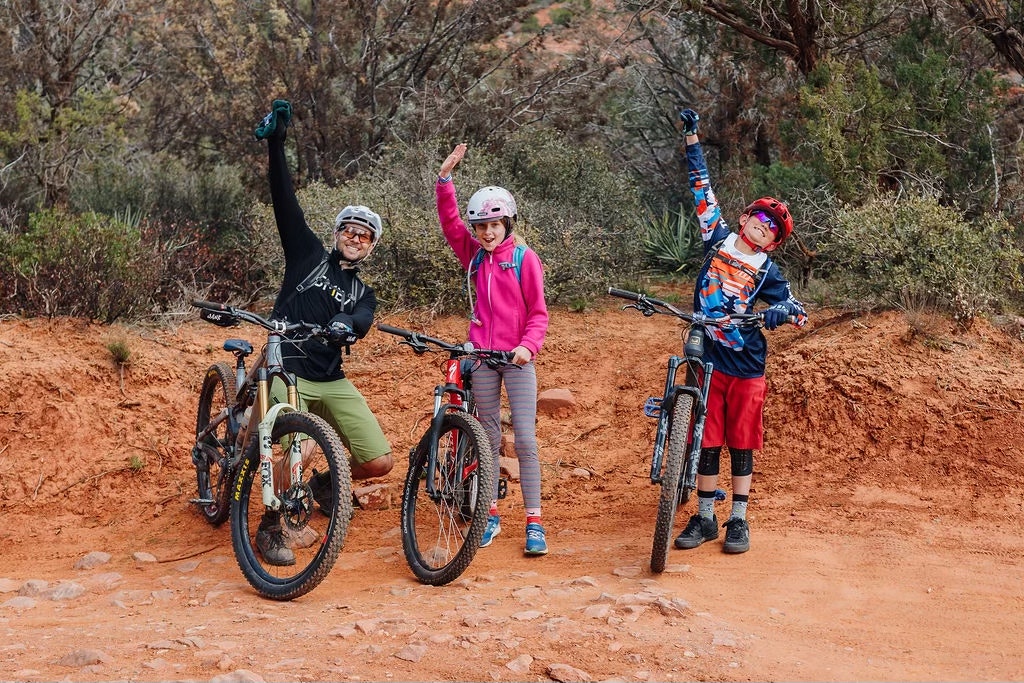
Of course, beyond the coaching hours, Anthony logs plenty of miles on the trails by himself and with friends, tapping into the benefits of spending time outside, focused only on the dirt beneath his tires and the next turn or feature to navigate. The physical and mental attention the sport requires deliver benefits for body and mind that carry over into all aspects of his life, on and off the bike. Anthony said, “I think mountain biking is one of the easiest ways to quickly enter a flow state. There’s a bit of adrenaline and risk involved, which forces my mind to focus on the present. For those five or ten minutes that I’m descending a mountain, I can’t prioritize any stressors or any of the millions of other thoughts I might have running through my mind. I’m only focused on the act of getting down the trail safely.”
That flow state has a lasting impact, too. “I think that space you give your mind to not think about any problems beyond what’s directly under your tire reorders your thinking, allowing you to see things from a new angle. I may start a ride feeling stuck in a problem, and later that day I’ll find myself considering it from a new direction and finding a solution I hadn’t been able to see before.”
The clarity and expansive thinking Anthony experiences in the wake of a ride carry over to work, as well. “When I return from a long bike ride, because my prioritization and perspectives have shifted slightly, I’m often able to approach a work project differently or think more creatively to solve a problem.”
It’s clear that for Anthony, intentionally creating a life that blends work and his passion is serving both things well. “The flexibility and autonomy of my work in the last few years has really allowed me to rethink a lot of my goals. I’ve realized how important it is for me to be able to devote time and energy to my life beyond work, and I’m grateful I have that opportunity.”

